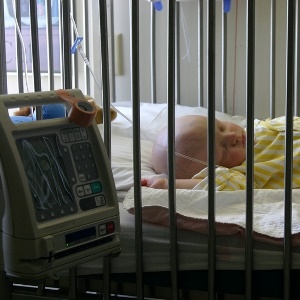
Significant progress has been made in treating childhood cancers, but more needs to be done to fight tougher cancers and protect the long-term health of survivors, a new report says.
A compelling story
In 2016, more than 14,600 children aged 19 and younger will be diagnosed with some form of paediatric cancer, and 1,850 will die, according to the American Cancer Society (ACS), which compiled the report with the Alliance for Childhood Cancer.
"The numbers here tell a compelling story," said Katherine Sharpe, senior vice president of patient and caregiver support at the ACS.
"We have seen significant progress when it comes to developing effective treatments for a variety of paediatric cancer sites and ultimately saving lives," she said in an ACS news release.
Read: Childhood cancer: Know the facts
"But when we expand our view to look at all paediatric cancers, as well as long-term health and survival, it becomes clear that there are still areas of research where progress is urgently needed."
The five-year survival rate for all childhood cancers combined rose from 64 percent among patients diagnosed between 1975 and 1979 to 84 percent for those diagnosed between 2005 and 2011, according to the report.
Changes made to treatments
But there is wide variation in survival rates. For example, the five-year survival rate for neuroblastoma is currently 78 percent, but it is only 40 percent to 50 percent for high-risk neuroblastoma. The five-year survival rate for some childhood cancers, such as a type of brain cancer known as diffuse intrinsic pontine glioma, is close to zero, according to the report.
The report also said that childhood cancer survivors have high rates of late side effects, chronic health problems and early death.
Read: Childhood cancer ups risk of autoimmune disorders
More than two-thirds of childhood cancer survivors who were treated several decades ago developed chronic conditions, and more than one-third of survivors 35 and older have had severe or fatal health problems, the report found.
That rate of severe health problems is more than five times higher than among survivors' siblings.
Coordination of trials crucial
In recent decades, changes have been made to childhood cancer treatments to reduce these later health risks, according to the report.
Read: Tips for parents of children with cancer
The report also identified a number of challenges to childhood cancer research. Many paediatric cancers are unique to children and require separate research from adult cancers, which means child-specific tumour banks and unique animal models for paediatric cancer drug testing are needed.
The small number of children diagnosed with any given type of cancer can make it difficult to conduct clinical trials. So, careful coordination of trials is crucial to avoid competition for the same patients, the report authors added.
Drug companies also don't invest as much in childhood cancer research and drug development as they do in adult cancer research, which means most research funding must come from the federal government and charitable groups, the report said.
Read more:




 Publications
Publications
 Partners
Partners















